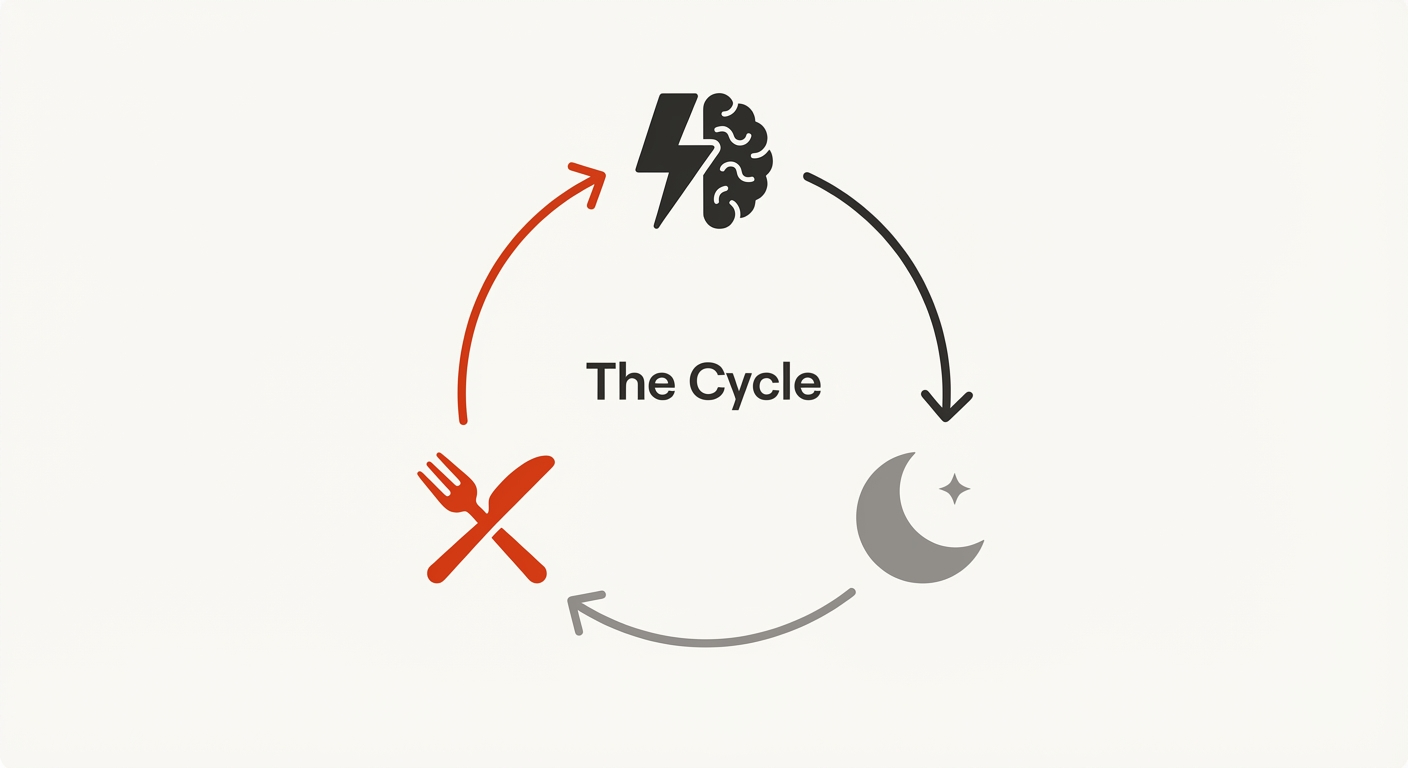Rapid weight gain can happen for various reasons, some harmless, while others pose serious health risks. In this article, we’ll explore the causes of rapid weight gain, the potential risks, and what you can do to manage it.
What is considered rapid weight gain?
Weight gain caused by aging or increased appetite is typically gradual and steady. Most adults will gain around 0.5 to 1 kg (or 1.1 to 2.2 lbs) per year, increasing as they pass middle age.
What is considered rapid weight gain is an increase of 2 kg (4.4 lbs) within a few days to a week. This may be a potential symptom of an underlying health issue.

Ready to start your weight loss journey?
Get a personalized treatment plan from a Canadian nurse practitioner 100% online, with free delivery and ongoing support.
How to manage rapid weight gain
Rapid weight gain can be caused by various factors such as overeating behaviours, decreased physical activity, hormonal imbalances, medications, or certain medical conditions.
Here are a few things to keep in mind when managing sudden weight fluctuations.
Learn to manage your stress
Too much stress can lead to weight gain, so it’s important to find healthy and productive ways to manage it. You can try exercise, meditation, yoga, journaling, or even talking to a therapist about your feelings.
Look for the cause
Try to evaluate your food intake, emotional status, sleep, stress levels, and any changes in your body. What are the most common causes of rapid weight gain? Many factors can contribute to rapid weight gain. Some could be quite manageable, while others might be more challenging. Here are some of the most common causes of weight gain.
Binge
During the holidays and while on vacation, it can be tempting to fill up on delicious snacks, high-calorie drinks, and hearty meals. But consuming more calories than your body needs can lead to weight gain. This may also happen if you regularly eat large portions or indulge in rich foods.
Inactivity
A lack of physical activity can cause weight gain. When you’re not moving regularly, your body burns fewer calories, which can lead to excess weight.
A sedentary lifestyle can be expected for those stuck in front of their computers a lot or even for people who’ve recently had an injury and need to be confined to a bed or couch. While a lack of physical activity can cause weight gain, it’s best to stay as active as you can. If you’re unsure of how you can maintain physical activity without injury, consult a healthcare practitioner to discuss your options of staying active.
The yo-yo effect
Commonly observed in patients following strict, low-calorie diets, the yo-yo effect is the sudden weight gain after a patient stops dieting.
Patients may experience an overwhelming increase in hunger or appetite, which may lead to overeating. Weight could be linked to changes in the hunger and satiety hormones — ghrelin and leptin, respectively.
Stress and poor sleep
When people are stressed, they may resort to emotional eating. Studies have found that emotional eating, which involves eating in response to negative emotions, contributes to the connection between depression and an increase in body mass index (BMI) and waist circumference.

Insomniacs and night owls may also find it harder to lose excess weight. Insufficient sleep increases the body’s energy needs but also dramatically increases food intake concerning energy expenditure, thus contributing to sudden weight gain.
Hormonal changes
Hormones play a significant role in regulating your weight. Fluctuations in estrogen, testosterone, and other hormones can cause rapid weight gain. Speaking with a licensed healthcare practitioner can help you find out if there are hormonal changes and what to potentially do about it.
Genetics
Unfortunately, your genes can influence your weight. In fact, studies show that between 70% to 80% of your body mass index (BMI) is determined by your genes.
Medications
Significant weight gain has been associated with antipsychotics, antidepressants, corticosteroids, antidiabetics, and antihypertensives.

Rapid weight gain caused by medications can be tricky because, on the one hand, you want to treat your illness, but you also want to maintain a healthy weight. With the increasing use of pharmaceuticals, it’s essential to consider the potential weight effects of medications before taking them. If changing the medication isn’t possible, alternative therapies could be considered after speaking with your healthcare practitioner..
Quitting smoking
Quitting smoking is a healthy move, but there are challenges that come with it. Research shows that smoking cessation often results in rapid weight gain, especially in the first month.
When people quit smoking, they may gain around 1 kg (or 2.2 lbs) in a month on average because nicotine reduces hunger and without it, they may suddenly become more hungry. Withdrawal symptoms can also contribute to stress, which can cause overeating. Fortunately, this sudden weight gain is typically short-lived, and seem to die down once the person gets used to being nicotine-free.
Medical conditions
Some causes for sudden and unexplained weight gain include medical conditions such as hypothyroidism, Cushing’s syndrome, and heart failure.
Hypothyroidism
Thyroid hormones are crucial in regulating metabolism — when thyroid levels are low, your body burns calories slower. Hypothyroidism can also cause fluid retention when your body holds on to excess fluid, making you feel bloated. The impaired production of thyroid hormones can lead to an inability to properly break down and use fats for energy.
Cushing’s syndrome
Cushing’s syndrome is a hormonal disorder caused by high levels of cortisol, a hormone produced by the adrenal glands. Without proper treatment, this condition can lead to rapid weight gain through increased appetite, fluid retention, and fat accumulation.
Cushing’s syndrome can cause fat accumulation in specific body areas, including the face , upper back, and abdomen. This fat redistribution can lead to a characteristic appearance of weight gain in these parts of your body.
Heart failure
Rapid, unexplained weight gain is a symptom of heart disease. The Canadian Heart & Stroke Foundation warns that weight gain of more than 2 kg (4.4 lbs) within 48 hours or more than 2.5 kg (5.5 lbs) in a week could indicate fluid retention, which may signify worsening of a heart condition.

How to combat and prevent sudden weight gain
If you’re concerned about unexplained weight gain, there are steps you can take to prevent it.
Monitor your health status
Your weight isn’t the only number that matters — you should also keep yourself informed on your cholesterol, blood sugar, and blood pressure levels. Any irregularities could mean that there is something wrong within your body. Early detection is the key to keeping yourself away from illness.
Make healthy lifestyle changes
Eating a healthy diet and staying active can help manage weight gain. Focus on eating a balanced diet of fruits, vegetables, whole grains, lean protein, and healthy fats. Aiming for at least 30 minutes of physical activity daily is also beneficial.

Managing rapid weight gain further
It’s always best to consult a healthcare practitioner for anything that concerns your health, that includes weight management. Whether or not you’ve figured out the cause for your sudden weight fluctuations, the healthcare practitioners at Felix can help you make better decisions. They could adjust your medications or order particular tests to confirm any suspected health conditions.
Many healthcare practitioners and channels are available to cater to your specific needs. Talking to a healthcare practitioner about weight gain is a great place to start.





